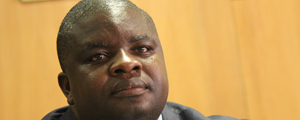
Following the just-ended high-level investment conference held in South Africa last week, NewsDay (ND) spoke to Economic Planning and Investment Promotion minister Tapiwa Mashakada (TM) to get his views on this and other issues affecting investment in the country.
ND: How would you describe the just-ended investment conference?
Where you happy with the attendance compared to last year?
MT: The high-level investment conference was attended by about 450 business executives from across the diverse South African economic et managers and captains of industry and commerce. and business spectrum. The profile of delegates included private equity, experts, venture capitalists, fund managers, bankers, delegates was better than those who attended the 2012 investment conference in Sandton because this time we had ample time to organise the conferhttps://newsday.wpengine.com/wp-admin/import.phpence and target key players, hence the conference was a huge success. The conference aroused media interest back home and globally.
International investors’ interests were horned by the fact that Zimbabwe had just successfully conducted a referendum and the country is on the cusp of a watershed election, investors seized the opportunity to peep into the future of this great country. Moreover, investors were generally alive to and aware of Zimbabwe’s potential from the ministry’s roadshows and branding efforts, accompanied by reforms initiated at Zimbabwe Investment Authority (ZIA) such as the one stop shop and the proposed amendments to the ZIA Act which will make the application of indigenisation flexible and strategic.
ND: From the 2012 conference did Zimbabwe manage to get any actual investments?
MT: Investment roadshows are not shopping trips where you bag in there and then, it does not happen that way. The conference aimed to excite the South African market regarding Zimbabwe’s diverse opportunities, explain the dynamics of doing business in Zimbabwe and clarify policies. At this stage all that can be said is we received a lot of enquiries from investors who showed keen interest on Zimbabwe.
These include a company that is ready to move in with gold refinery plant, another ready to move in on diamond cutting and polishing and another one ready to establish a new sugar cane refinery plant in Chiredzi for new farmers. I will not divulge names behind these transactions until they move in. But what you must appreciate is that investing is a long-term decision, it is not a casino decision.
- Chamisa under fire over US$120K donation
- Mavhunga puts DeMbare into Chibuku quarterfinals
- Pension funds bet on Cabora Bassa oilfields
- Councils defy govt fire tender directive
Keep Reading
The phase we are in is probably a phase of re-engagement and incubation. Zimbabwe’s investment potential index is high, according to United Nations Conference on Trade and Development, but its attractiveness index is low, you see.
When you look at the Investment fora, you got to have a sense that we are “seeding”. During this phase you target low-hanging fruits, which is the South African capital markets.
ND: Are South African investors ready to come to Zimbabwe before the elections? TM: It is up to investors to determine the right time to come in depending on their ability to raise capital. It is neither here nor there. But one thing which came out crystal clear is that as it currently stands, the indigenisation policy remains the single most evasive barrier for rapid investment and it should inevitably be reviewed.
ND: We have noted that for the past two years you held the investment conference, Zanu PF ministers have not been attending the meetings. Why is this so?
TM: Regrettably, Zanu PF ministers failed to attend in person, preferring to send representatives at the levels of permanent secretaries or directors. The programme was truly inclusive and I don’t want to speculate on the reasons why they did not attend. You can ask ministers Walter Mzembi, Saviour Kasukuwere, Obert Mpofu and Nicholas Goche. Maybe they have better reasons.











